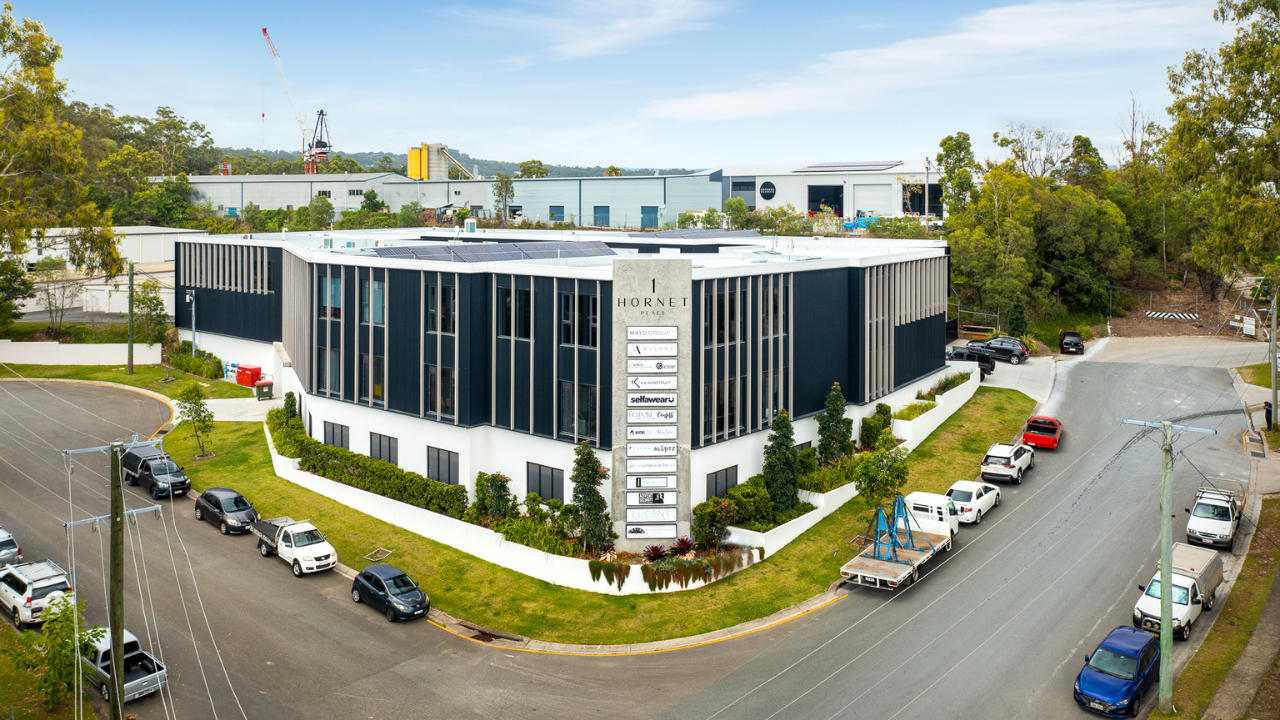The name Kollosche is synonymous with luxury property on the Gold Coast. When you list or buy with Kollosche, you align with the best in the business.
Current Listings

18 T E Peters Drive
Broadbeach Waters 4218
- 4
18 T E Peters Drive
Broadbeach Waters 4218

38-40 Darrambal Street
Surfers Paradise 4217
38-40 Darrambal Street
Surfers Paradise 4217

1201/1 Lake Orr Drive
Varsity Lakes 4227

301/56 Scarborough Street
Southport 4215

104-116 Beacon Road
Tamborine Mountain 4272
104-116 Beacon Road
Tamborine Mountain 4272

38 Ghostgum Grove
Upper Coomera 4209
Why Kollosche Commercial
- 01BRAND POWER
- 02SIX-STAR SERVICE
When you invite a Kollosche agent into your property or business, we seek to understand your needs, goals and expectations - and deliver on them.
- 03COLLABORATION
Commercial and residential agents work together to expose each property to a greater pool of buyers to build competitive tension for premium results.
- 04PREMIUM RESULTS
A strategic approach to marketing ensures each campaign receives maximum exposure to attract qualified buyers and negotiate premium pricing.
- 05COMMUNITY
A percentage of every sale goes back into the Kollosche Community Fund, which supports a range of charities, sporting groups and community causes.
- 06ONE-STOP SHOP
Kollosche offers full support through it’s operational and administrative arms for seamless service under one roof.
Request an Appraisal
Keeping your property valuation up to date is essential for compliance and accurate financial reporting. Whether you're preparing for a transaction, meeting superannuation requirements, or simply reviewing your fund’s performance, an appraisal ensures you’re aligned with ATO guidelines and protected from potential penalties.
Submit the form below to request a current market appraisal and stay informed about your property’s true value.
Frequently Asked Questions
What advantage does Kollosche Commercial offer sellers?
Kollosche Commercial’s sales arm is led by Adam and Tony Grbcic, a father and son team with more than 50 years’ combined experience in the commercial sector. The Grbcics have a proven track record of results across all asset classes such as retail, office, industrial, mixed and special use, development sites and leasehold assets.
A powerful brand, industry knowledge and experience puts Kollosche Commercial in an ideal position to advise sellers on the right sales strategy for your asset. Innovative marketing attracts qualified buyers and builds competitive tension needed to achieve premium pricing.
Can Kollosche Commercial appraise the value of my property?
Kollosche Commercial’s Adam Grbcic is both a licensed realtor and a qualified property valuer.
Adam has the skills to advise on property valuations for clients seeking a market update for Self Managed Super Funds or accounting purposes. Adam cannot provide valuations for bank purposes. For more information, reach out to Adam on adam@kollosche.com.au.
How long does settlement take for a commercial property?
The timeframes for commercial contracts are generally longer due to the level of scrutiny required. It is common for commercial buyers to need in excess of 30 days when obtaining finance and conducting due diligence. Settlements of 60 to 90 days are also common in the commercial sector, while development sites can take up to 18 months to settle. Kollosche Commercial remains in regular contact with sellers throughout the sales process.
Should I use a commercial or residential agent?
Certain properties fall within the category of both residential and commercial in terms of what the potential end uses might be. Kollosche Commercial works in close collaboration with our residential sales agents. We can advise on the best strategy to market your property to its full potential and engage the right agents to execute an effective campaign. Ask about previous collaborative campaigns that have achieved outstanding results for our clients.
How can buyers benefit from Kollosche Commercial’s expertise?
Kollosche Commercial’s sales arm is led by Adam and Tony Grbcic, a father and son team with more than 50 years’ combined experience in the commercial sector. The Grbcics are experienced across all asset classes such as childcare, aged care, storage, medical, retail, commercial, industrial, development sites and leasehold assets. Extensive industry knowledge means we can advise buyers on how to reposition assets to better use for optimal returns.
Does Kollosche Commercial assist with due diligence?
Kollosche Commercial provides an end-to-end service for both buyers and sellers. With a qualified valuer on the team, buyers can proceed with peace of mind knowing they are receiving full transparency on the building they are purchasing along with accurate rental assessments in line with current market values.
What happens after my offer is accepted?
A Letter of Offer form will be provided by the selling agent to the potential buyer to complete when they are ready to make an offer. This form presents the buyer with the chance to outline their full offer including purchase price, initial deposit, special conditions and settlement period.
The vendor may alter the Letter of Offer and send it back to the buyer for review. This negotiation process can go back and forth until both parties are satisfied. Once the final offer has been signed by both parties, it becomes a legally binding document.
If the contract entered into is conditional on finance, building and pest or any other special condition, a time frame will be prescribed in the contract to meet the requirements of the conditions (often 14 days, but this can sometimes be longer or shorter).
It is the buyer’s responsibility to carry out their due diligence, book in a building and pest inspection, and liaise with their financer. If the buyer is satisfied with the outcome of any conditions outlined in the contract, the buyer’s solicitor will need to notify the seller’s solicitor that the contract can become unconditional.
Once a contract is unconditional, the balance deposit outlined in the contract will become payable and final searches will be conducted by the buyer’s conveyancer to make necessary arrangements for settlement. The bank will liaise directly with the conveyancer to arrange the transfer of funds on settlement day.
It is recommended for buyers to conduct a pre-settlement inspection on the morning that settlement is due to ensure the property is empty and in the same condition as when it was initially inspected. If there are any issues, it is important to mention this prior to settlement.
Kollosche Commercial facilitates this process with frequent communication between both buyer and seller to ensure a smooth transaction for all parties.
What do I need to know when buying from interstate?
Buyers who are based interstate are advised to seek legal advice prior to entering into a commercial contract in Queensland, as regulations and laws differ from state to state. Kollosche can refer to local legal professionals, while our in-house legal team prepares and vets all documents in commercial transactions to ensure a smooth purchasing process for all parties. Kollosche Commercial agents have a strong working knowledge of town planning regulations and common development restrictions, and can refer you to relevant authorities for more specific information and guidance.
Can Kollosche Commercial find tenants and manage my property?
Kollosche Commercial provides an end-to-end service for commercial asset owners with sales, leasing and property management under the one roof. Industry veterans Kelly Buxton and Elke Rosen draw on decades of experience and a strong network of relationships to achieve optimal returns on commercial assets. Kelly specialises in Commercial Leasing while Elk is focused on Property Management, and together they provide successful outcomes for commercial owners across all sectors including retail, office, industrial, mixed and special use assets.
Can Kollosche help me to purchase fully occupied investment stock?
When seeking to purchase fully occupied investment stock, Kollosche Commercial can offer insight into the existing lease and if the current income is true to market values. Our in-house legal team reviews existing leases to ensure all documents are in order prior to sale.
The information provided on this page is for ease of reference only and is not intended to be relied on as legal or financial advice. In all circumstances, we recommend that you seek independent legal and/or financial advice to ensure that you are fully informed in relation to the risks and obligations associated with a relevant transaction.

SOUND DECISIONS STEM FROM ADVICE YOU CAN TRUST
Kollosche draws on decades of experience, industry expertise and local market insights to help you make informed decisions.








